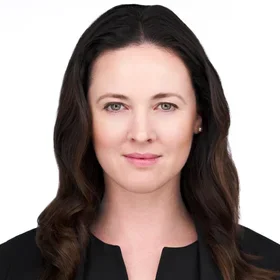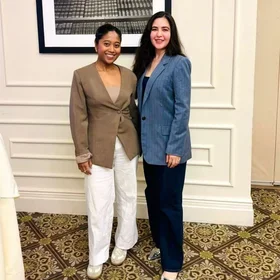In his undergraduate years, Mingke Du double-majored in Applied Mathematics and Psychology. He knew he was good at math, and he was looking for a program that could further his skills in the area. He settled on Columbia’s Actuarial Science program, where he was happy to learn there was an emphasis not just on the hard skills, like math, but also on the soft skills, like communication. He graduated in December 2020; after fielding offers from large companies while finishing an internship at Columbia SPS, he began working as an Equity Investment Analyst at Industrial Bank Company, Ltd. in Beijing in June. Two of the key parts of the program that he says led to his success were the extensive global alumni network and the Integrated Projects class that allowed him to publish a paper on the website for the Society of Actuaries (SOA).
Why did you choose Columbia’s M.S. program in Actuarial Science, over other programs?
Columbia has built a very good reputation, especially around the greater New York area, which is a global financial center; the location itself and the program offered many opportunities for me to make connections with industry leaders and alumni. Also, the Actuarial Science program here has many classes that helped me to prepare for the actuarial exams. For example, one of my professors, Abraham Weishaus, was actually the writer of the Society of Actuaries (SOA) and Casualty Actuarial Society (CAS) exam manuals, and that enabled me to learn some very niche skills that helped when taking the exam.
What did you think of the faculty in the program?
The faculty here is very good at what they’re doing. Professor Abraham Weishaus, for example, is one of the best professors here. He leads many of the advanced actuarial courses, and, as I mentioned, he even wrote the exam manuals himself. There are a lot of neat tricks that other people won’t tell you, and you won’t read about in textbooks—you can only learn them from him. The other professors have very insightful industry knowledge, especially in finance, which can really help you learn about areas other than insurance, like stocks and security markets. You can learn so much from those professors that you cannot learn outside of this program. Columbia’s Actuarial Science professors have decades of experience and they want to help you get into the field and master the skills you’ll need to succeed as an actuary—you can’t read about that in a textbook and you won’t learn that just from talking to working actuaries.
One of my professors was actually the writer of the Society of Actuaries (SOA) and Casualty Actuarial Society (CAS) exam manuals, and that enabled me to learn some very niche skills that helped when taking the exam.”
What was your internship experience like?
I took a course called Integrated Projects last summer. Through the course, I received a rare opportunity: one of my mentors was the SOA Research Director. As part of the course, he acted as a client and provided guidance to groups of students who were working on real-world projects. As part of the project, my job was to analyze a very new database that included COVID-19 data, which allowed me to gain insights on how COVID may impact the insurance industry as a whole moving forward. That’s something completely unique. There are also many other opportunities within the Integrated Projects course. This course is the reason I had standout internships, which gave me a great advantage in the job market after graduation.
My group got a chance to send our report to the SOA Research Director, and it was eventually published on the SOA website. The SOA, as people who study actuarial science know, is not only a well-respected organization in the U.S. but also all over the world. The chance to publish a report on their website means that you have very good industry insights and the exposure is great. The SOA also distributes a newsletter for actuaries around the world; this allowed us to continue learning about happenings in the field globally, especially during the pandemic.
The program also has a huge alumni network back in China. We have hundreds of people working in China right now, and more than 50 of them are very actively involved in our social events, so there are a lot of chances to meet them.”
Do you have any advice for other international students?
If you completed your undergraduate degree in China and are going on to graduate study here at Columbia, one thing I would recommend to you is to join everything you are able to, and talk with people as much as possible because it’s important to practice your communication skills with others, and to practice your English skills, especially. I think that’s one of the most important things if you’re looking for a job in the U.S. You must be able to speak to other actuaries as well as non-actuaries. You’ll talk to underwriters, data scientists, customers, and so on. It’s really important that you have those required communication skills. So participate in every opportunity you can to talk to others, no matter if that’s a professor, an alum, or a current student. No matter what, just practice your English.
Columbia’s Actuarial Science program will provide you a really good opportunity to look for jobs, especially on the East Coast, or in the greater New York area. The program also has a huge alumni network back in China. We have hundreds of people working in China right now, and more than 50of them are very actively involved in our social events, so there are a lot of chances to meet them. I know a lot of other schools don’t have that. They may not have enough international students, or the students may not have as tight a bond with the alumni like we do. The network provides great opportunities for you to land a job in the future. I think considering your future development is one of the most important things to consider when you apply to Actuarial Science programs.


